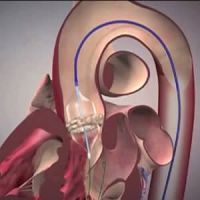A five-year study (2010-14) of hospital statistics from the United States shows that the incidence of stroke has risen steadily among marijuana users, even though the overall rate of stroke remained constant over the same period.
The study, presented at the 11th World Stroke Congress in Montreal, Canada, looked at U.S. hospital statistics from 2010 to 2014. It examined a total of 2.3 million hospitalisations among people who used marijuana recreationally. Of these, 32,231, or 1.4 percent, had a stroke including 19,452 with acute ischaemic stroke (AIS).
Over the five years studied, researchers found the rate of stroke of all types among marijuana users increased from 1.3 percent to 1.5 percent. The rate of AIS increased from 0.7 percent to 0.9 percent. During the same five-year period, the prevalence of stroke among all patients was stable.
Based on the study findings, the researchers conclude that these growing trends of stroke among marijuana users "warrant further prospective studies to evaluate the marijuana-stroke association amidst legalisation of recreational use."
The researchers noted in introducing their study that marijuana "has a potential link to stroke owing to cerebrovascular effects of cannabinoids."
This year's World Stroke Congress brought together leading international stroke experts and an unparalleled scientific programme covering epidemiology, prevention, acute care and recovery in hundreds of sessions and oral posters. Late-breaking trials presented at the congress included:
- A study of Nationwide Implementation of Mechanical Thrombectomy in Germany, which found that a wide range of both IVT and MT rates in German ischaemic stroke patients indicates the need for further improvement of access to acute recanalisation therapies in many, mainly rural, regions.
- A study that assessed the use of the drug rivaroxaban versus acetylsalicylic acid (ASA) to prevent strokes in patients with an enlarged left atrium of the heart. The results showed some potential benefit from rivaroxaban but caution was urged.
The 11th World Stroke Congress, jointly organised by the World Stroke Organization (WSO) and the Canadian Stroke Consortium (CSC), was attended by stroke professionals, researchers, policy makers, survivors and caregivers from around the world.
Image Credit: Pixabay
Latest Articles
Stroke, Acute ischaemic stroke, marijuana
A five-year study (2010-14) of hospital statistics from the United States shows that the incidence of stroke has risen steadily among marijuana users, even though the overall rate of stroke remained constant over the same period.



























